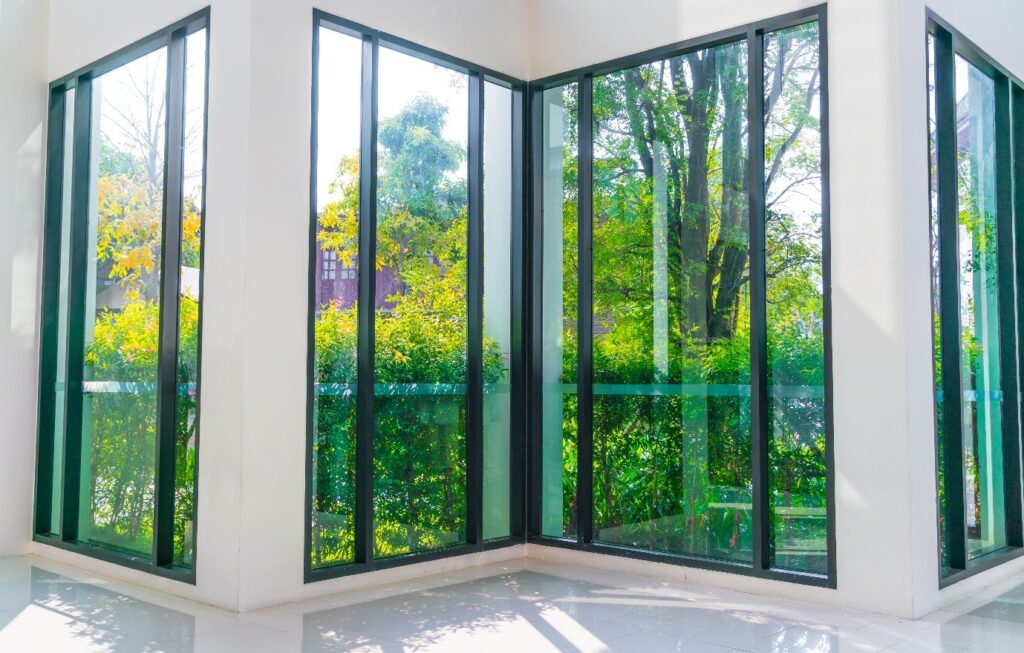Glass contractors are essential to the installation, upkeep, and repair of glass buildings in our residences and workplaces. It might be difficult to choose the best glass contractor for your project, but it is essential to guarantee the durability and safety of your glass constructions. This post will highlight seven crucial inquiries you should make of your prospective glass contractor.
Are you licensed and insured?
Employing a contractor who is not licensed or insured might result in legal, financial, and safety issues. A licensed contractor has received training, certification, and education in the most recent building standards and safety regulations. An insured contractor, on the other hand, can shield you from liability in the event of catastrophes, losses, or injuries on the job.
What type of glass do you use?
Tempered, laminated, insulated, and low-e glass are all used by glass contractors for a variety of applications. It is vital to ask the contractor what type of glass will be utilized for your project and why. Each type of glass has its own set of traits, advantages, and disadvantages that may affect the energy efficiency, security, soundproofing, and aesthetics of your glass building.
Do you provide a warranty for your work?
A trustworthy glass installer ought to provide a guarantee on both their goods and their labor. A warranty is a legal agreement that promises the contractor will fix any flaws or damage to the glass installation within a certain time after it has been finished. In the event of unanticipated repairs or replacements, a warranty may provide you with piece of mind and financial protection. When signing the warranty, it is important to read and comprehend its terms and conditions as well as to discuss any questions or issues you may have with the contractor.
How do you handle unexpected issues or damages during the project?
Glass installation projects can encounter unexpected issues or damages, such as measurement errors, glass breakage, or weather conditions. It is crucial to ask your glass contractor about their contingency plans and procedures for handling such situations. A skilled contractor must to have a risk management strategy that covers insurance, communication channels, and safety procedures. They should also be able to swiftly and openly tell you of any problems or delays that might influence the project’s budget or timeframe.
Can you provide references or examples of your previous work?
One of the best ways to assess the quality and reliability of a glass contractor is by reviewing their previous work. Ask your contractor for references or examples of similar projects they have completed in the past. A reputable contractor should be proud to show you their portfolio and testimonials from satisfied clients. Moreover, you can visit the site of their previous projects and evaluate the workmanship, professionalism, and cleanliness of the contractor and their team.
What is the estimated cost and timeline for the project?
It’s critical to comprehend the project budget and schedule before employing a glass contractor. Get a formal estimate from your contractor that includes all project elements, such as materials, labor, permits, and taxes. The estimate should also outline the payment plan and the extent of the work that needs to be done. Asking about the project schedule and any potential delays or problems that could occur is also very important. A trustworthy contractor should be able to provide you a reasonable timeframe and immediately inform you of any modifications or revisions.
Conclusion
Choosing the right glass contractor for your project is crucial for the safety, durability, and aesthetics of your glass structures. Asking the right questions before hiring a contractor can help you make an informed decision and avoid potential issues or conflicts. The seven questions we have discussed in this article cover the essential aspects of a glass installation project, such as licensing, insurance, glass types, warranties, contingency plans, references, and estimates. By asking these questions and evaluating the responses of your contractor, you can ensure a successful and satisfying glass installation experience.
FAQs
Q1. How do I verify the license and insurance of a glass contractor?
A1. You can check the license and insurance status of a glass contractor by contacting your local or state licensing board and insurance company.
Q2. How long should a glass installation project take?
A2. The length of a glass installation project relies on a number of variables, including the project’s size, complexity, and scope, as well as the accessibility of labor and supplies. Based on the details of your project, a skilled glass contractor should be able to provide you a reasonable schedule.
Q3. Can I ask for references from previous glass installation projects?
A3. Yes, you can ask a glass contractor for references from their previous projects to assess their experience, and customer satisfaction.
Q4. What is the difference between annealed and laminated glass?
A4. Annealed glass is a standard glass that is cooled slowly to relieve internal stresses and increase its strength. Laminated glass, on the other hand, is a sandwich of two or more glass layers with an interlayer of polyvinyl butyral (PVB) that increases its strength, sound insulation, and UV resistance.
Q5. What should I do if I encounter issues or delays during the glass installation project?
A5. You should communicate the issues or delays promptly with your glass contractor and try to resolve them amicably. If you cannot reach a satisfactory resolution, you may need to seek legal or regulatory assistance.
Q6. How do I compare estimates from different glass contractors?
A6. AYou should compare estimates based on the scope, quality, and duration of the project, as well as the credentials and reputation of the contractor. However, you should avoid selecting the lowest estimate without considering the other factors, as it may indicate low quality or hidden costs.










Leave a Reply